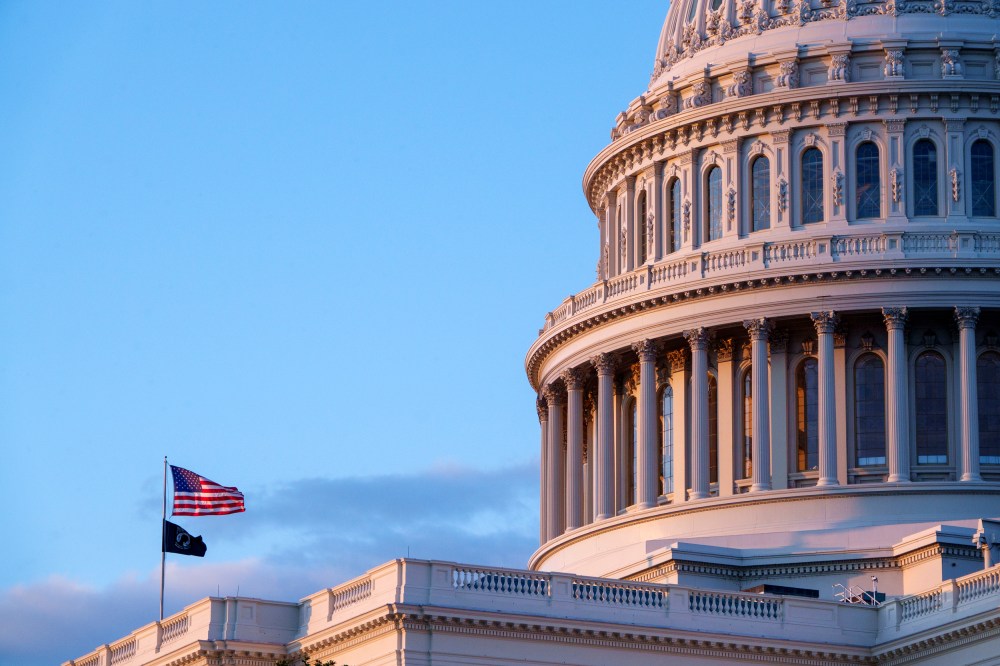UPDATE (Sept. 19, 2:24 p.m. ET): On Friday afternoon, Senate Democrats blocked the GOP’s House-passed spending bill Friday afternoon, denying Republicans the 60 votes needed to advance the measure, while Senate Republicans rejected a Democratic funding proposal. Both moves increased the odds of a government shutdown.
House Republicans muscled through a short-term funding bill Friday, marking the start of a shutdown blame game that may leave government employees out of work come October.
The House passed the spending bill 217-212, with only one Democrat in support, sending the legislation to the Senate, where it is likely to flounder without Democratic support. The measure would extend funding at current levels through Nov. 21, buying lawmakers more time to hash out funding for the remainder of the fiscal year.
While the debate is focused on government funding, the arguments have zeroed in on health care.
Democrats have been pushing for any spending bills to include an extension of subsidies that help keep costs down for Americans who buy health insurance through state and federal exchanges created by the Affordable Care Act. Republicans, however, have argued the subsidies can be dealt with later since they don’t lapse until the end of the year.
An analysis by the Congressional Budget Office found that letting the subsidies end would result in 3.8 million fewer people having health insurance over the next decade, while extending them would increase the deficit by $350 billion.
Time is running out for Congress to decide, as insurance companies will soon release their rates, and open enrollment for next year begins Nov. 1.
“As a result of the Republican assault on health care in the United States of America, health care premiums for tens of millions of people who are on private insurance are going to skyrocket as people receive notices over the next several weeks, and as we approach open enrollment on Nov. 1,” House Minority Leader Hakeem Jeffries, D-N.Y., said Tuesday. “Democrats are going to continue to stand on the side of the health care of the American people and Republicans are clearly trying to gut it.”

Speaker Mike Johnson, R-La., maintains that the expiring Obamacare subsidies are “a December policy issue, not a September funding issue,” but it was also clear from debate on Friday that a number of Republicans oppose extending the subsidies.
House Budget Committee Chairman Jodey Arrington, R-Texas, for instance, said his Democratic colleagues were “demanding an audacious $1.4 trillion in new spending.”
The bill now heads to the Senate, where it faces an uncertain future. Democrats seem poised to oppose the legislation Friday, denying Republicans the 60 votes they need to advance the bill.












